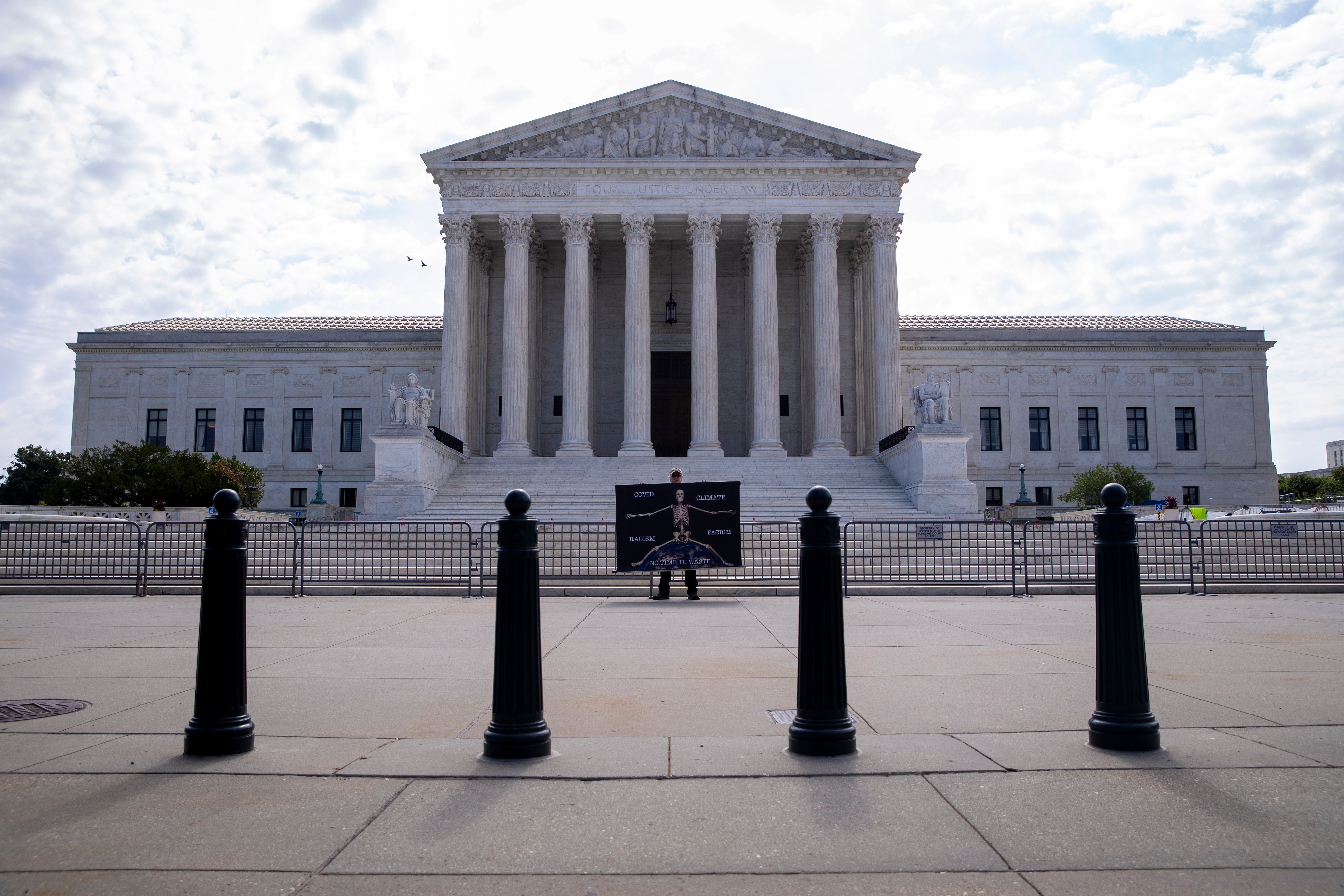Supreme Court blocks cutting prison sentences for low-level crack offenders
After vicious war on drugs that disproportionately impacted Black Americans, people convicted of possessing only small amounts not eligible for reduced sentences despite retroactive law

Your support helps us to tell the story
From reproductive rights to climate change to Big Tech, The Independent is on the ground when the story is developing. Whether it's investigating the financials of Elon Musk's pro-Trump PAC or producing our latest documentary, 'The A Word', which shines a light on the American women fighting for reproductive rights, we know how important it is to parse out the facts from the messaging.
At such a critical moment in US history, we need reporters on the ground. Your donation allows us to keep sending journalists to speak to both sides of the story.
The Independent is trusted by Americans across the entire political spectrum. And unlike many other quality news outlets, we choose not to lock Americans out of our reporting and analysis with paywalls. We believe quality journalism should be available to everyone, paid for by those who can afford it.
Your support makes all the difference.People jailed for possessing only small amounts of crack cocaine are not currently eligible for reduced prison sentences despite a federal law that sought to retroactively adjust discrepancies between sentences for crack cocaine and powder cocaine offenders during the war on drugs, according to a US Supreme Court ruling on Monday.
Justices argued that a recently passed law – the First Step Act, a rare bipartisan measure that sought to correct long-standing imbalances from the war on drugs – only applies to people imprisoned under mandatory minimum drug sentences, but not in cases where judges had more discretion but imposed harsher sentences.
Monday’s decision was unanimous.
Passage of the First Step Act followed the aftermath of the crack “epidemic” in the 1980s, when Congress passed a sweeping law – the Anti-Drug Abuse Act of 1986 – that declared that a person in possession of a small amount of the drug could receive the same prison sentence as someone who possessed 100 times that amount in powder form.
Those harsher sentencing guidelines disproportionately impacted Black Americans, given much longer prison terms compared to white people who faced convictions for possessing essentially the same amount of the drug.
The measure has been widely condemned among criminal justice reform advocates, prompting Congress to revisit the law in 2010 with the Fair Sentencing Act, which reduced the disparity from 100 times to 18 and eliminated the five-year mandatory minimum sentence.
In 2018, Congress passed the First Step Act, which made those changes retroactive.
The case that reached the high court involved Tarahrick Terry, who was sentenced to more than 15 years for possession of fewer than four grams of crack cocaine in 2008. He was not sentenced according to previous federal sentencing guidelines.
At the time of his arrest, the law imposed a 10-year mandatory minimum sentence for possession of at least 50 grams of crack and a five-year minimum for at least five grams. A third tier did not include mandatory minimums involving an unspecified amount.
But the First Step Act only applies to the first two tiers, effectively keeping people on the hook for lengthy sentences despite the smaller amount, and still applying the same racially disparate sentencing laws.
Justice Department attorneys under Joe Biden’s administration – as well as lawmakers who authored the law – have argued that it should apply to low-level offences, changing course from the narrow scope of the law under Donald Trump’s administration.
Terry sought a reduced sentence under the First Step Act, but a lower court ruling argued that the law did not apply to low-level possession that fell under “covered offences” in the law. An appeals court ruling sided with the lower court, and Mr Terry appealed to the Supreme Court, as he seeks to serve the remainder of his sentence in home confinement. His sentence ends later this year.
“The question here is whether crack offenders who did not trigger a mandatory minimum qualify,” Justice Clarence Thomas wrote for the court’s opinion. “They do not.”
The ruling could imperil hundreds of currently incarcerated people who were convicted for possessing only small amounts of crack that do not apply as “covered” offences.
In her concurring opinion, Justice Sonia Sotomayor pressed Congress to revisit the law and provide broader protections for low-level offenders.
She pointed to arguments from lawmakers who called on the court to interpret the First Step Act to apply to people like Terry and hundreds of other incarcerated people sitting in prison for only small amounts of the drug.
“Unfortunately, the text will not bear that reading,” she said. “Fortunately, Congress has numerous tools to right this injustice.”
Join our commenting forum
Join thought-provoking conversations, follow other Independent readers and see their replies
Comments